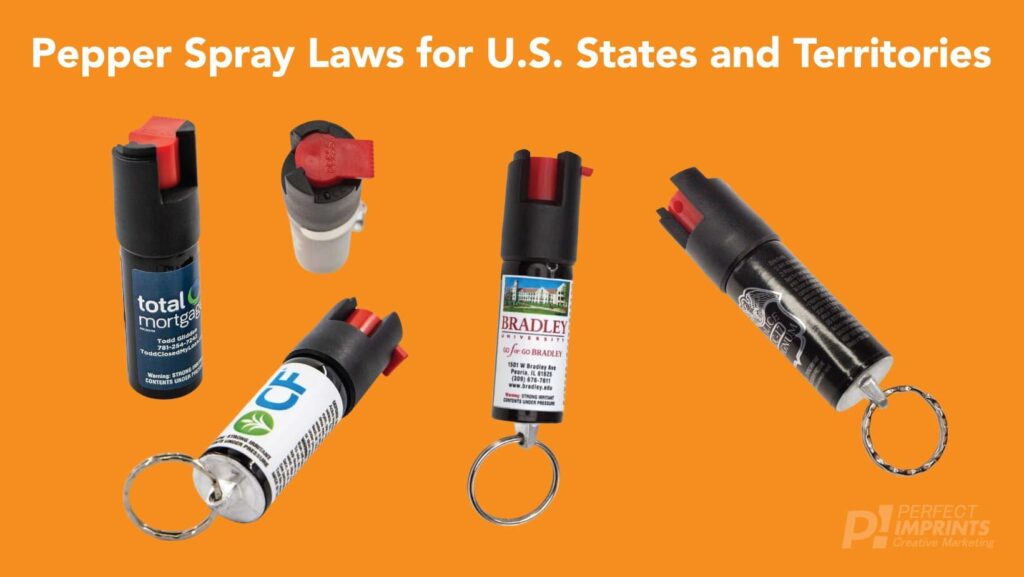Table of Contents
- Understanding the Legal Landscape of Pepper Spray Across Different Countries
- Key Regulatory Variations and Their Implications for Users
- Safety Guidelines and Best Practices for Responsible Pepper Spray Usage
- Practical Recommendations for Travelers Carrying Pepper Spray Internationally
- Final Thoughts
Understanding the Legal Landscape of Pepper Spray Across Different Countries
When considering carrying or using pepper spray, it’s essential to recognize the varying legal frameworks across the globe. Some countries, like the United States, have relatively lenient regulations but still differ significantly by state, with restrictions on concentration levels, container size, and age limit requirements. In contrast, nations such as the United Kingdom classify pepper spray as a prohibited weapon, making possession a criminal offense. Meanwhile, parts of Europe adopt a more nuanced approach – allowing use only for professional law enforcement or requiring strict licensing for civilians. This diversity in legislation emphasizes the importance of researching local laws before purchasing or carrying pepper spray, as unintentionally breaching regulations can lead to severe penalties.
Key aspects to consider include:
- Legal classification: Is pepper spray considered a weapon, controlled substance, or self-defense tool?
- Permissible users: Are civilians allowed to carry it, or is it restricted to law enforcement personnel?
- Usage limitations: Are there specific places, such as public transport or airports, where carrying pepper spray is illegal?
- Required permits or licenses: Must you register or obtain government authorization before possession?
Key Regulatory Variations and Their Implications for Users
Jurisdictions worldwide exhibit significant variation in pepper spray regulations, often reflecting cultural attitudes toward self-defense and public safety. Some countries permit unrestricted possession and use, allowing citizens to carry pepper spray for personal protection without prior authorization. In contrast, others impose stringent restrictions-limiting sales to licensed individuals, banning civilian usage altogether, or controlling concentration levels and container sizes. These disparities not only affect accessibility but also dictate the legal consequences for misuse, ranging from civil fines to criminal charges.
For users navigating these diverse rules, understanding local legislation is essential. Failure to comply can lead to severe penalties, even if the intent is self-defense. Key factors varying by region include:
- Permissible concentration percentages of capsaicin-based formulas
- Age restrictions for purchasers or carriers
- Transport and storage requirements
- Usage scenarios defined by law, such as permissible self-defense contexts
Adhering to these regulations not only protects individuals from legal repercussions but also promotes responsible use, enhancing both personal safety and community trust.
Safety Guidelines and Best Practices for Responsible Pepper Spray Usage
Using pepper spray responsibly is crucial not only for personal safety but also to comply with legal standards and ensure the well-being of others. Before carrying or deploying pepper spray, always familiarize yourself with local regulations as laws vary significantly across jurisdictions. Store the spray securely and keep it out of reach of children and unauthorized users. When handling the device, test the spray in a safe environment to understand its range and effects, but do not misuse it as a prank or demonstration. Additionally, aim for exposed areas such as the attacker’s face-specifically targeting the eyes-to maximize effectiveness while minimizing unintended injuries.
When activating pepper spray, maintain a calm and controlled posture to prevent accidental exposure. In case you or someone nearby is affected, promptly move to fresh air and rinse eyes thoroughly with water or saline solution-avoid rubbing the face. Also, remember that pepper spray is a defensive tool, meant only for situations where you feel threatened. To maximize security, carry the spray in an accessible yet discreet place and be mindful of wind direction to avoid self-contamination. Incorporating these best practices not only enhances protection but also promotes legal and ethical use in self-defense scenarios.
Practical Recommendations for Travelers Carrying Pepper Spray Internationally
When preparing to travel abroad with pepper spray, it’s crucial to thoroughly research the specific regulations of your destination country. Laws can vary widely-not only in terms of legality but also regarding permitted sizes, concentration levels, and packaging requirements. Always carry documentation like the product’s certification and a clear statement demonstrating that the spray is for personal defense to avoid misunderstandings during customs inspections. Keep in mind that some countries classify pepper spray as a weapon and may require a permit or outright prohibit its possession.
To minimize risk and inconvenience, consider the following practical tips:
- Declare your pepper spray at customs if required, ensuring a transparent process.
- Store the spray in your checked luggage where allowed, since many airlines forbid pepper spray in carry-on bags.
- Verify airline policies ahead of travel, as carriers often have unique restrictions beyond national laws.
- Use travel-friendly containers that comply with both international and local standards.
- Stay updated on evolving legal frameworks by consulting official government websites or legal advisories before departure.
Final Thoughts
As pepper spray regulations continue to evolve worldwide, staying informed is essential for anyone considering its use or possession. Understanding the nuances of local laws not only ensures compliance but also promotes responsible and safe practices. Whether for personal defense or security purposes, being aware of global trends helps you make educated decisions and avoid legal pitfalls. Keep monitoring updates in legislation, and always prioritize safety and legality when it comes to pepper spray. Thanks for reading, and stay empowered!Check Our Other Blogs
- StunGun – Your Trusted Source for Stun Guns, Laws, and Self-Defense Tips
- PepperSprayLaws – Your Trusted Resource for Pepper Spray Information
- StunGunLaws – Your Trusted Guide to Stun Gun Legality and Safety




